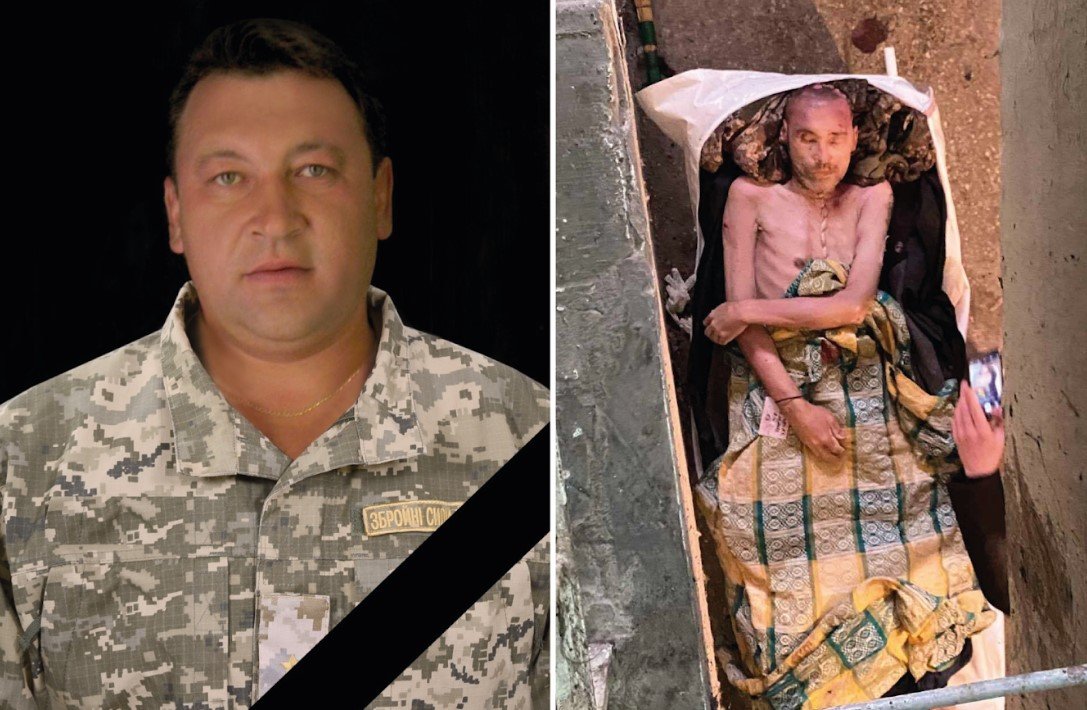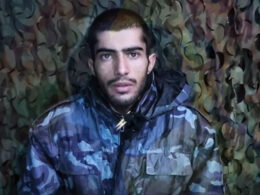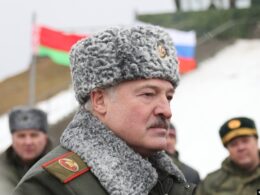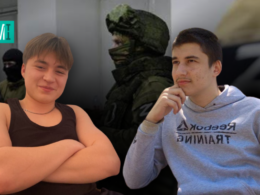Russians systematically torture Ukrainian prisoners of war (POWs) in their detention centers, often leading to deaths, however, they usually state "tuberculosis" as a cause of death, despite visible signs of torture on returned bodies, according to Texty.
Ukrainian news site Texty investigated a specific Russian detention center called Vyazemskoye Detention Center-2 in Vyazma town, Smolensk Oblast, and told stories of three captured Ukrainian soldiers who died in Russian captivity. Texty also interviewed one Ukrainian border guard who survived the Vyazemskoye Detention Center and shared how Russians physically and mentally break and destroy Ukrainian POWs.
Their investigation also shed light on problems within the Ukrainian bureaucratic system, in which Ukrainian officials often accept falsified Russian medical diagnoses of dead POWs, like tuberculosis, instead of acknowledging the true causes of death due to torture.
Killed for refusing to speak Russian
Oleksandr Hrytsiuk from Volyn Oblast, western Ukraine, worked as a builder but then volunteered to fight against full-scale Russian aggression in 2022, Texty writes. He was captured in April 2022 near Novobakhmutivka, Donetsk Oblast, and brought to the Vyazma detention facility.
He died in November 2023 in Russian captivity, and his body was returned in January 2024, weighing only 50 kg (110lbs) for his height of 180 cm (5’9 ft).
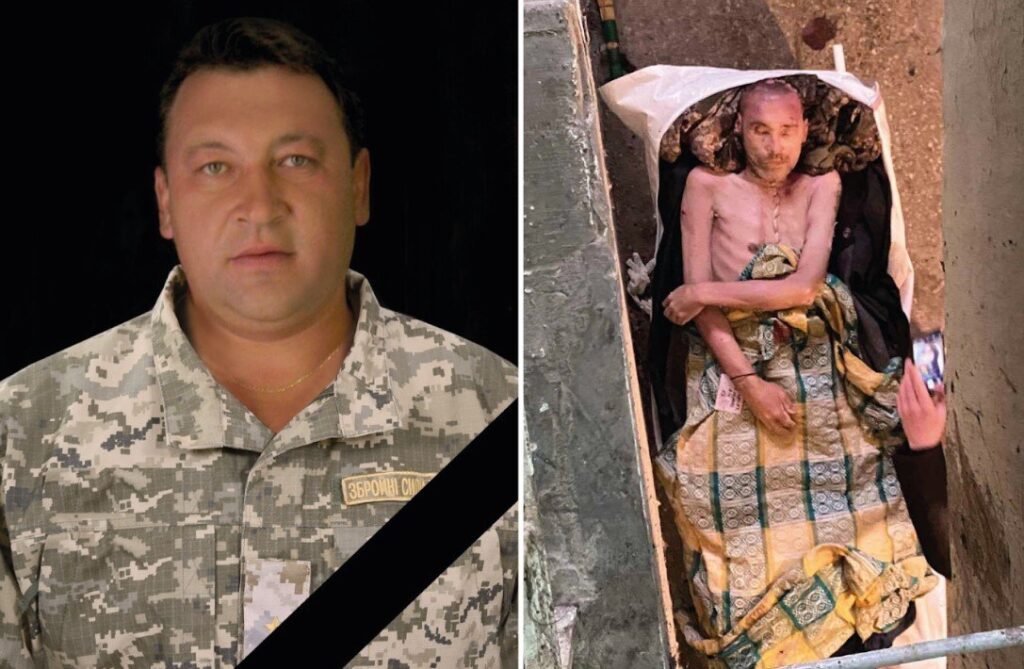
“Before captivity, he weighed 110 kg (242 lbs) and was physically healthy. What was left of him were just bones and skin. His head was all bruised, his nose was crooked, and his index fingers had no nails. Whether they were ripped out or smashed, I do not know. There were signs of torture all over his body,” his wife, Oksana Hrytsiuk, told Texty.
Oleksandr’s cellmates told Oksana that Russians beat them daily, forced them to stand motionless for hours, and fed them leftover dog food mixed with dog hair. They said that her husband was suffering the worst because he was tall, from western Ukraine, and refused to speak Russian.
They labeled him a “Banderite,” referring to Stepan Bandera and saying such people must be killed and dismembered. Bandera, a controversial leader of the Organization of Ukrainian Nationalists in the 20th century, fought against Soviet and Nazi forces. While Bandera is a symbol of the fight for Ukrainian independence in Ukraine, he is demonized by Russian propaganda, which sought to vilify Ukrainian independence movements in Soviet times.
Russian documents stated that Oleksandr died of tuberculosis, and Ukrainian forensic examination also listed it as the cause of death, ignoring the evident impact of abuse in captivity. Oksana is going to challenge this conclusion as she believes he died of Russian torture and starvation. She filed a criminal case about the cruel treatment of POWs to the prosecutor's office and hopes to get justice.
Body returned “terribly thin” after Russian captivity
Vitalii Klochenko from Mykolaiv Oblast, southern Ukraine, served as a reconnaissance machine gunner and was captured in Mariupol in April 2022, according to Texty. For about eight months, his family did not know where he was, and they later found out that Russians brought him to the Vyazemskoye detention center. That’s where Vitalii died.
There, he got infected with tuberculosis as Russians deliberately put a sick person in a cell with others to spread the disease. His cellmates also told his wife, Oksana, that Russians beat them severely, and if someone fell down and lost consciousness, they would place a shocker to their ear to revive them and then continue beatings.
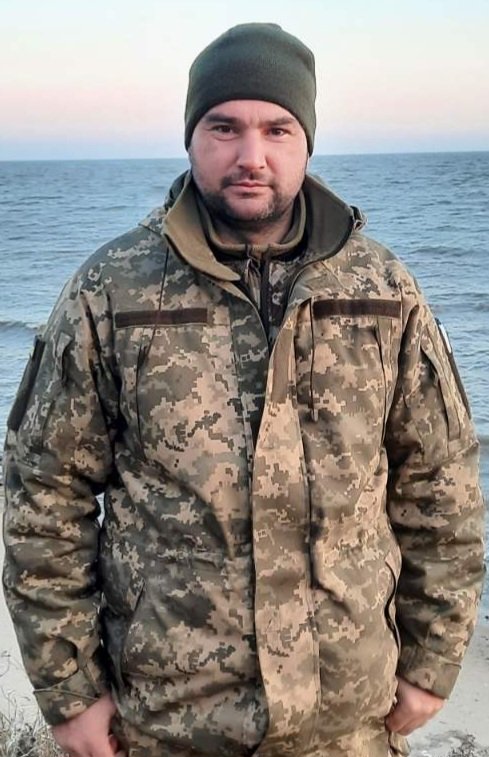
Oksana Klochenko, Vitalii’s wife, recalls seeing his dead body for the first time:
“One side of the body was already partially decomposed. On the other side, even in such a state, it was clear that he had been tortured and beaten. And the terrible thinness. Before he was captured, he was 185 cm tall and of normal build. But now, it was just shocking how thin he was,” she told Texty.
Vitalii’s death certificate declared he simply died from tuberculosis, and the Ukrainian forensic expert did not write where exactly he died, which was a Russian captivity in the Vyazemskoye detention center, so Oksana expressed frustration with the Ukrainian bureaucratic system that doesn’t take into account torture of POWs.
Russian guards kill Ukrainian military saxophonist through beating
Texty also tells the story of Sviatoslav Saltykov, a 22-year-old saxophonist of the military band, who was captured in Mariupol in 2022 and brought to the detention center in the Russian city of Kineshma.
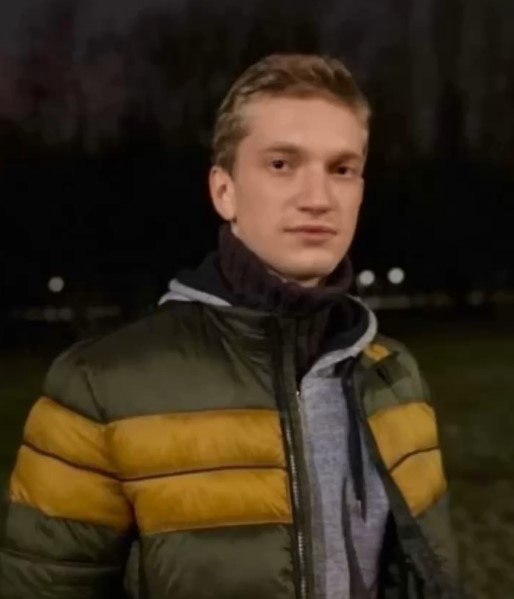
Surveillance cameras monitored their every movement, and if the Russian guards noticed that someone looked the wrong way, raised their head, or said something, they immediately ran into the cell to beat the Ukrainian POWs.
Sviatoslav regularly got nosebleeds because of some problems with blood vessels in his nose. Once, Russian guards found a puddle of blood by his bed and took him to a separate cell, most likely a solitary cell, according to his cellmates. One Russian guard hit him, and Sviatoslav died.
His mother, Maryna Saltykova, shared with Texty that the guards forced him to sing because, as a saxophonist, he had a good voice and memory.
Sviatoslav’s death certificate stated he died of a heart attack, but his mom noted that before captivity, he regularly did sports and rode a bicycle.
Survivor of Russian captivity tells they were denied sleep for three nights in a row
Unlike the others, Oleksii Kretsu survived Russian captivity and shared his experience with Texty. He even met Oleksandr Hrytsiuk and Vitalii Klochenko, who died in Vyazemskoye Detention Center, shedding even more light on the inhumane treatment of Ukrainian POWs.
Oleksii Kretsu, from southern Ukraine’s Mykolaiv Oblast, remembers that he spent the first two days in captivity with his hands tied and his eyes covered. Then, Russian guards beat the prisoners with shockers, batons, hands, and feet. They threatened to kill everyone because there was not enough space and food for everyone. They also kept Ukrainian POWs in complete informational isolation to lower their morals.
“In the morning, from wake-up at 6:00 AM to 10:10 AM, we stood motionless in the cell. You stand facing the door: you can't even lower your head because they consider you to be sleeping. Each cell had surveillance cameras, usually two, rarely just one. Every movement was monitored. You were in trouble if you turned your head or leaned on the bed. Only the severely injured or very ill, who couldn't stand, were allowed to sit,” Oleksii shared.
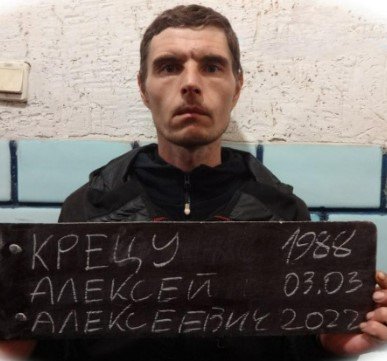
His prison cell was freezing in winter without heating, and, on top of that, they weren’t allowed to move. On hot summer days, the window was tightly closed, and the radiators were heating at maximum, so that some prisoners were losing consciousness.
Russians fed them with grains soaked in often cold water and mashed potatoes made from spoiled greenish potatoes, the color of a salad.
Oleksii remembers that they could use a toilet for no more than three minutes, no matter what. During shower time, Russians commanded them to undress, put their legs apart, head down, and hands behind the back ("dolphin" position) so that the female guards could beat them in the genitals with boots and stun guns.
Ukrainian POW gone mad from torture
Once, a Russian investigator tried to falsify evidence that Ukrainian soldiers were killing, looting, and raping people in the war zones, especially in Mariupol. However, when he didn’t get the information he wanted, as it was not true, he made the POWs "play the score game."
For three nights, they were forced to stand in one position from morning till evening and at the same time, endure beatings. The worst thing Oleksii remarks was that they couldn’t sleep because they were forced to call out their bed number one after another for the whole night.
One Ukrainian POW went mad and started screaming:
"We are on a TV show, this is all a prank. Let me out of here, I'm in Kyiv. It’s not real. This is all a prank,” he yelled.
Russians took him away, and he returned back as a vegetable because of unknown pills and injections but also constant beatings. His inmates had to feed him with a spoon.
Moral pressure in Russian captivity
Russian guards also pressured them morally, saying that Ukraine doesn’t exist anymore - “it’s all Russia now.” When someone mentioned Lviv, one of the most western cities in Ukraine, the guards replied:
“It is not yet Russia, but it will be soon. So learn the language [Russian]."
Ukrainian prisoners in Russian detention were made to learn Russian poems and listen to narratives portraying Ukrainians as “traitors,” “descendants of Bandera,” and “perpetrators of massacres” against Poles and Jews during World War II.
The prisoners were forced to listen to the Russian anthem multiple times a day and to perform grueling physical exercises, which, combined with inadequate food and regular beatings, caused many to lose consciousness.
“Every evening, when I lay down to sleep, I dreamed of waking up somewhere in a sanatorium or not waking up at all,” Oleksii recalls.
After two years in Russian captivity, he returned back to Ukraine and now undergoes treatment for tuberculosis and hepatitis B, which he contracted while in captivity.
“I often dream of falling asleep here and waking up there. And it is so scary that I wake up in a cold sweat. It doesn't let me go,” Oleksii shares.
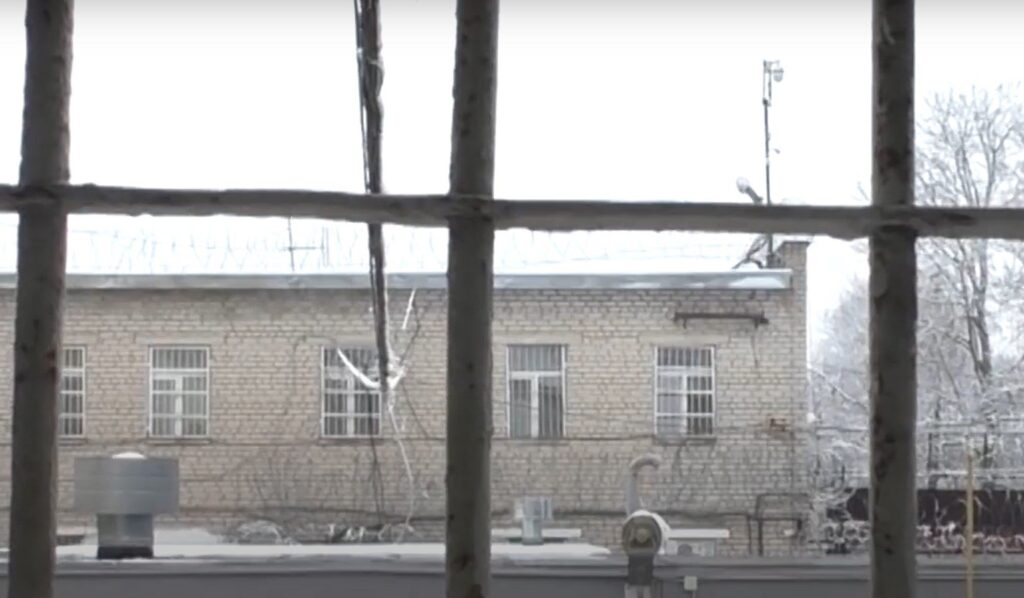
Abuse in Russian detention centers is common
The abuse and mistreatment of Ukrainian prisoners is not limited to Detention Center No. 2 in Vyazma but is likely widespread across the 42 Russian detention facilities where Ukrainians are held, according to the Media Initiative for Human Rights.
According to Texty, these facilities, located both near the Ukrainian border and deep within Russia, were reportedly emptied of Russian inmates around the time of the full-scale invasion in February 2022, with some Russian detainees remaining as staff.
Texty asserts that the abuse is not an individual case but a clear Russian state policy aimed at destroying Ukrainians physically and morally, which constitutes genocide.
Deaths of Ukrainian POWs in Russian captivity increase
The Ukrainian Media Initiative for Human Rights (MIHR) reported a “significant increase” in deaths of Ukrainian POWs in Russian captivity, confirming 22 deaths, while relatives of POWs cite up to 160 people killed.
Prisoners, particularly from the 36th Marine Brigade, who defended Mariupol, endure severe mistreatment, including extreme deprivation, torture, and inadequate medical care.
Conditions include sharing one cup of water among eight people and being forced to stand for 18 hours daily.
UN confirms cases of torture in Russian captivity, especially sexual violence
The United Nations also confirmed widespread torture and executions of Ukrainian POWs by Russian forces. They interviewed 60 recently released Ukrainian POWs, with nearly all of them describing torture by Russian servicepersons or officials during their captivity.
The report highlighted that more than half of the POWs were subjected to sexual violence, and most were denied communication with their families and adequate food and medical attention.
Ukraine’s Coordination Staff for the Treatment of Prisoners of War also reported that 403 Ukrainian women in Russian captivity, many of whom are civilians, endure humiliation, malnutrition, lack of medical care, and restricted contact with relatives. Russia refuses International Red Cross access to detention sites and manipulates exchange lists, ignoring international laws on releasing women and the severely ill.
Related:
- Over 160 Russian torture sites found in Ukraine, says Ukrainian prosecutor general
- Up to 90% of Ukrainian POWs suffered torture, Attorney General says
- Torture and abuse: Grim reality for civilians in Russian-occupied territories of Ukraine
- “Welcome to hell”: UN report exposes Russia’s systematic torture, killings, and crimes against humanity in Ukraine

